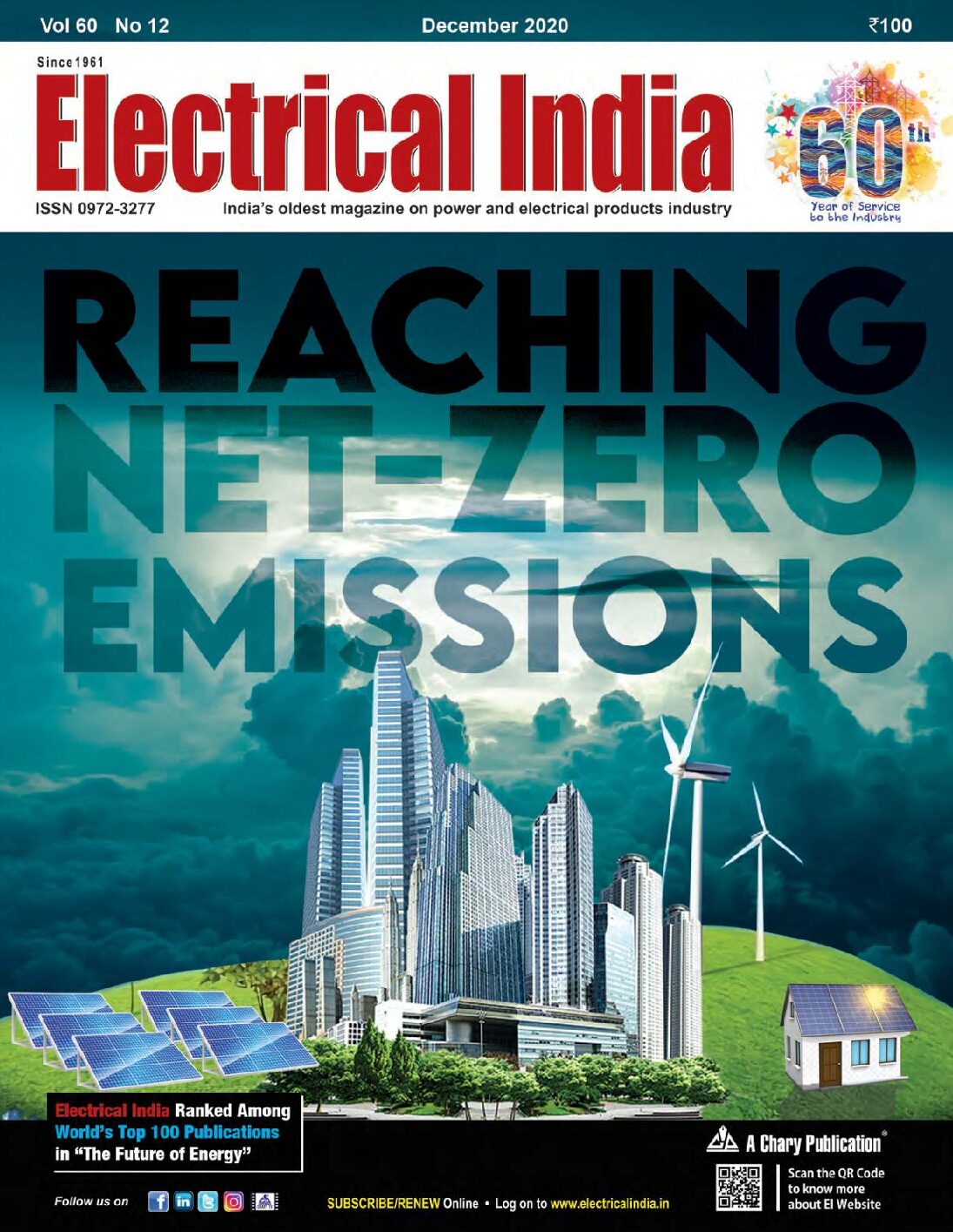
In the recent past, there has been lot of talk about likely dangers due to ‘Global Warming’ and how it is going to adversely affect our day to day life. Everyday newer phrases are coined to attract the attention of the people. Reducing ‘Carbon foot-print’ and becoming ‘Carbon-neutral’ are some of the favourite ones. Despite much hue and cries, there is hardly any activity visible on the ground. A few corporate house doing something as ‘social responsibility’ may not make any dent. People have to understand that the single largest reason for the climate change is the inefficient use of energy and resources. We need to realize that at the end of the day, we are all governed by the laws of the nature. Besides, there are other man made laws which must be followed for a sustainable life style.
‘Eco-not for me’ Growth
The word ‘Economy’ itself contains the word ’Eco’, but in our pursuit for higher and higher superficial growth, we went on neglecting the ecology and environment. Finally, the ‘Economic Growth’ has come to mean “Eco-not for me” Growth.
We have not only refused to obey the laws of the nature but do not even bother to understand several eco-friendly laws and policies passed by our law makers after lot of deliberations. The business and industry lobbies mistakenly resist their implementation thinking it will hamper the growth rate. The lazy and indifferent bureaucracy only helps them by going slow on the actions needed.
These laws and policies relate to conservation and efficient use of energy, prevention of water and air pollution, conservation of forests, wildlife protection, bio diversity and so on. Proper implementation of such laws and policies will only help the growth not retard it while simultaneously ensuring that the fruits of development reach the under-privileged without adversely affecting the environment. Let us take an example of one law which can make a huge difference to promote energy efficiency and renewable energy but will also help in reduction in Global warming. The law is called “The Energy Conservation Act, 2001.
Salient Features of ‘The Energy Conservation Act, 2001’
It is an ‘Act to provide for efficient use of energy and its conservation and for matters connected therewith or incidental thereto’. The Act includes mandatory provisions such as periodic energy audits, codes for design of energy efficient buildings, efficiency labelling of equipment and appliances, energy consumption norms for equipment and processes, appointment of energy managers, preferential treatment to energy efficient equipment and appliances. It also provides for prohibiting manufacture or sale or import of energy inefficient equipment and appliances.
There is also a provision for appointment of Inspectors with powers to inspect any premises where energy is being used inefficiently. It also provides for imposition of penalty for any non-compliance. However, these provisions are not effective since there are no Inspectors/ Adjudicating Officers and Tribunal to deal with the defaulters.
‘Inconvenient Truths’ about Indian energy sector
Believe it or not, but it is a fact that 25 % of world’s population without access to electricity lives in India. As per the Census, 2011 Figures, 33% of households in our country did not have electricity connection. Majority of households still depend on the firewood and kerosene for cooking and lighting their dwellings. This is despite the fact that we spend about 30 % of budget allocation to meet our energy requirements. Our net Oil import bill has crossed
Rs 7,50,000 crore mark.
We also import coal, nuclear fuel and even solar panels. At the same time, we continue with our policies to provide subsidy (directly or indirectly) on petroleum products and electricity to the tune of more than Rs 2,00,000 crore. Most of the subsidy is cornered by the undeserving population.
An estimated capital investment of more Rs 50,00,000 crore in the 12th five year plans is earmarked for energy sector while our social sector continues to live on lip sympathy. It might also be hard to digest but the facts remain that every 7th Child in our country sleeps hungry and that the majority of our population has no access to drinking water and sanitation. Our farmers are committing suicide everyday.
Generating wealth from nothing
The Energy Conservation Act, 2001 is a law which could help generates wealth from nothing. Wealth generation by way of conservation and efficient utilization of energy and resources is something which is entirely in our control and easily implementable.
There is no dispute that there exists a huge energy saving potential to the extent of 20 to 40% depending on the sector. This saving can be realized if the EC Act, is implemented in right manner.
An estimated amount of more than Rs 1, 50,000 crore could have been saved every year by following the law in letter and in spirit. Similarly other ‘Eco-friendly’ laws and policies have tremendous scope for generating wealth from ‘nothing’. Of-course, the wealth is not generated from ‘nothing’ but by avoiding wastages, pilferage and by using the energy and resources efficiently.
How the business will grow!
The energy savings will help increase profitability for the business while simultaneously making available the saved energy to the large population living in rural areas. Presently without access to electricity if these homes are assured of power supply there will be tremendous growth for all basic electric and electronic goods. This will have cascade effect as all other sectors in the supply chain will see growth.
Steel, Cement, Copper and Aluminium sector will grow as there will be need for laying of transmission and distribution network, increased production of transformers, cables, etc. One can imagine the growth of service sector.
This is an example of only one law i.e. ‘Energy Conservation Act, 2001′. Just imagine the potential of business growth from the conservation sector; if all the well meaning, eco-friendly laws and policies, are implemented sincerely. The Industry and business would do well by taking pro-active part in ensuring their implementation for the long term benefits.















